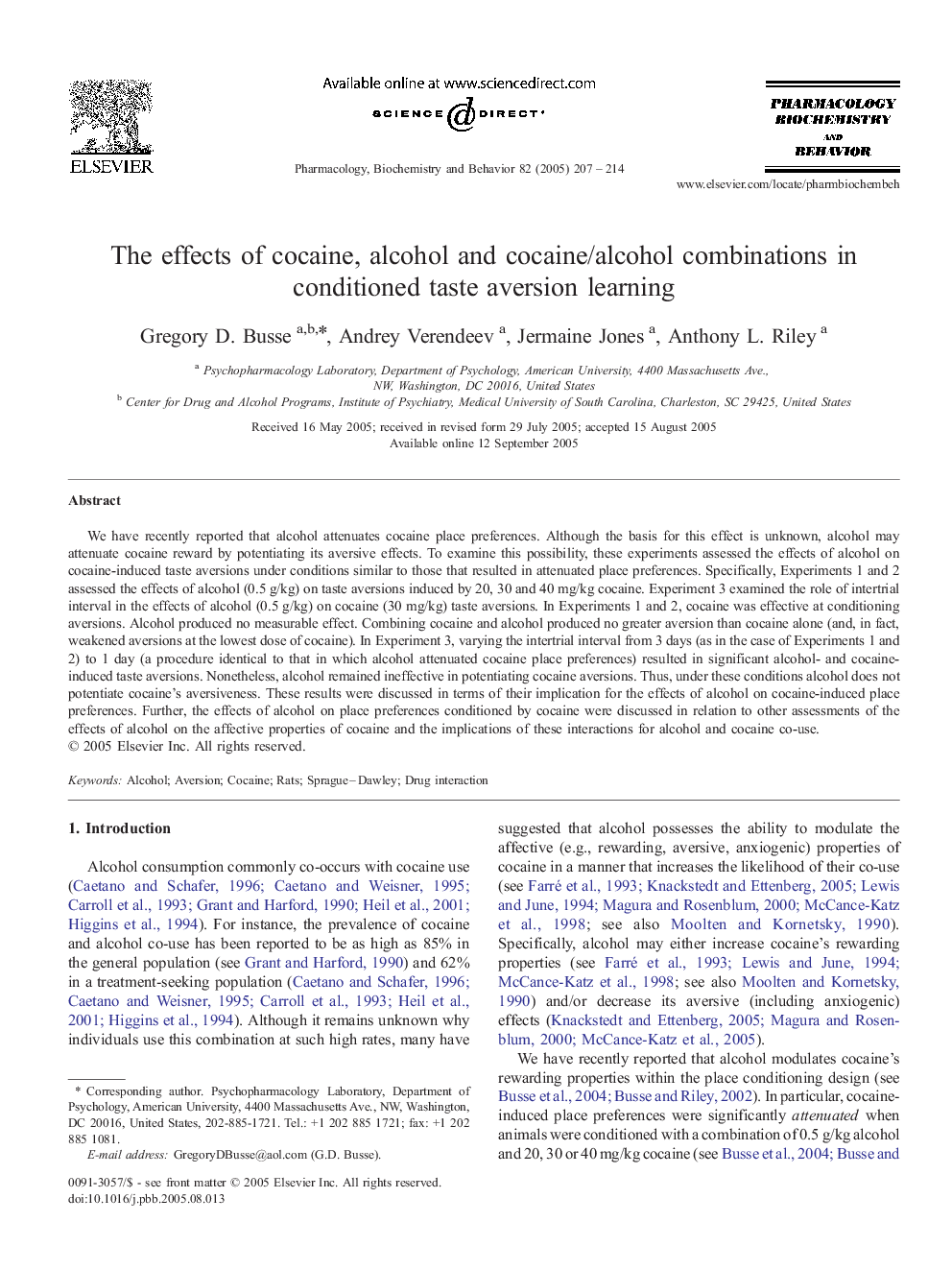| Article ID | Journal | Published Year | Pages | File Type |
|---|---|---|---|---|
| 10838379 | Pharmacology Biochemistry and Behavior | 2005 | 8 Pages |
Abstract
We have recently reported that alcohol attenuates cocaine place preferences. Although the basis for this effect is unknown, alcohol may attenuate cocaine reward by potentiating its aversive effects. To examine this possibility, these experiments assessed the effects of alcohol on cocaine-induced taste aversions under conditions similar to those that resulted in attenuated place preferences. Specifically, Experiments 1 and 2 assessed the effects of alcohol (0.5 g/kg) on taste aversions induced by 20, 30 and 40 mg/kg cocaine. Experiment 3 examined the role of intertrial interval in the effects of alcohol (0.5 g/kg) on cocaine (30 mg/kg) taste aversions. In Experiments 1 and 2, cocaine was effective at conditioning aversions. Alcohol produced no measurable effect. Combining cocaine and alcohol produced no greater aversion than cocaine alone (and, in fact, weakened aversions at the lowest dose of cocaine). In Experiment 3, varying the intertrial interval from 3 days (as in the case of Experiments 1 and 2) to 1 day (a procedure identical to that in which alcohol attenuated cocaine place preferences) resulted in significant alcohol- and cocaine-induced taste aversions. Nonetheless, alcohol remained ineffective in potentiating cocaine aversions. Thus, under these conditions alcohol does not potentiate cocaine's aversiveness. These results were discussed in terms of their implication for the effects of alcohol on cocaine-induced place preferences. Further, the effects of alcohol on place preferences conditioned by cocaine were discussed in relation to other assessments of the effects of alcohol on the affective properties of cocaine and the implications of these interactions for alcohol and cocaine co-use.
Related Topics
Life Sciences
Biochemistry, Genetics and Molecular Biology
Biochemistry
Authors
Gregory D. Busse, Andrey Verendeev, Jermaine Jones, Anthony L. Riley,
